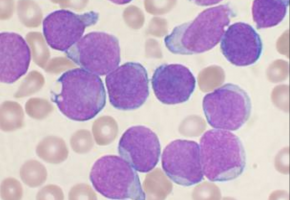
Researchers have uncovered how mutations in a protein network drive several high-risk leukaemias, offering new prospects for novel therapies.
An existing drug might be repurposed to treat these leukaemias, and the new understanding of the molecular mechanisms at work may offer clues to other drugs yet to be developed.
A team led by Wei Tong, PhD, a haematology researcher at Children's Hospital of Philadelphia (CHOP), reveals how mutated proteins cause several types of leukaemia, particularly chronic myelomonocytic leukaemia (CMML) and juvenile myelomonocytic leukaemia (JMML), both of which tend to have a poor prognosis as they progress to acute myeloid leukaemia (AML).
"These leukaemias currently have few treatment options, so identifying the causative gene networks may lead to more effective targeted treatments," said Tong.
The research appeared online in Genes and Development.
The study team investigated a well-known kinase, or signalling protein, called JAK2, which plays a key role in the development of blood-forming cells in bone marrow.
If something disrupts the normal regulation of JAK2 activity, JAK2 triggers the uncontrolled growth of marrow cells that give rise to a myeloid leukaemia.
Until now, the molecular events that regulate JAK2 were poorly established.
Based on studies in animals and in primary human leukaemia cells, Tong and colleagues now report that mutations in either of two proteins, CBL and LNK/SH2B3, form a complex with JAK2 to disrupt JAK2 regulation and cause leukaemia.
"This research has major implications for leukaemia patients," said Tong. "A drug called ruxolitinib inhibits JAK2 and is already approved by the Food and Drug Administration. Our studies in cells from leukaemia patients strongly suggest that patients with mutations in any of the three proteins could benefit from ruxolitinib."
She added that clinical research should test whether this drug can benefit patients with CMML and JMML, as well as AML patients who have CBL mutations.
In addition to the potential benefits of ruxolitinib, Tong said, the team's findings may lead researchers to develop novel leukaemia drugs aimed at mutations in any of the three proteins in a precision medicine approach.
"As we continue to discover that specific mutations may cause subtypes of cancer, learning the underlying molecular mechanisms provides opportunities to develop targeted treatments."